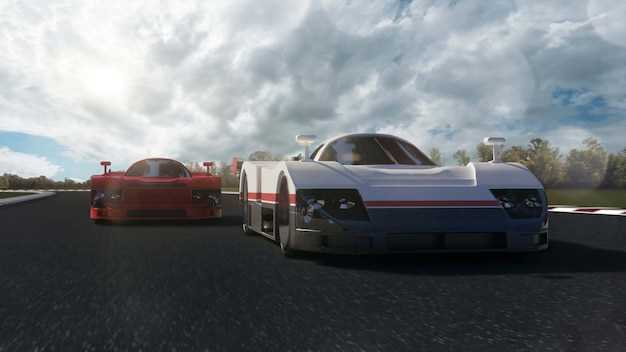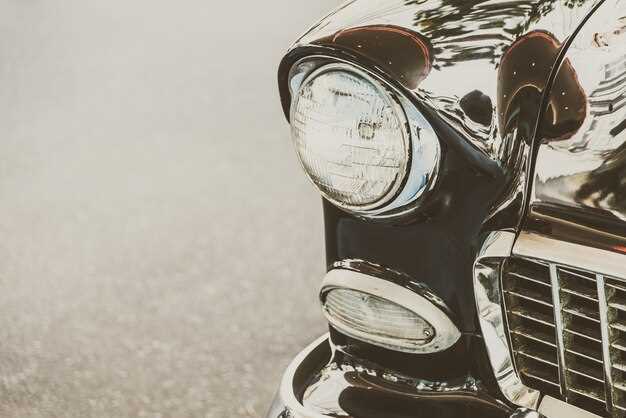
The legacy of Porsche in the realm of motorsport is undeniable. Since its inception, the brand has consistently redefined performance standards, making significant contributions to the evolution of racing. With a unique engineering philosophy, Porsche has developed vehicles that not only excel on the track but have also influenced the design and technology of road cars.
Porsche’s journey through motorsport history is marked by a series of groundbreaking innovations. From the iconic 356 to the legendary 917, each model has played a pivotal role in shaping competitive racing. The success of these vehicles is a testament to Porsche’s relentless pursuit of speed, reliability, and engineering excellence.
Beyond individual models, Porsche has established a culture of racing that emphasizes teamwork, strategy, and technology. Through its participation in various championships, including endurance races like Le Mans, Porsche has not only showcased its prowess but has also set benchmarks for other manufacturers. The brand’s influence is evident in modern motorsport, where its principles continue to inspire the next generation of racing enthusiasts and engineers.
Evolution of Porsche Racing Models and Their Influence on Track Performance

The evolution of Porsche racing models has had a significant impact on motorsport, showcasing advancements in technology, design, and strategy. Initially, the Porsche 356 laid the groundwork for the brand’s racing pedigree, demonstrating reliability and agility on the track. This model established Porsche’s commitment to engineering excellence, which would be pivotal in future designs.
The introduction of the Porsche 550 Spyder in the mid-1950s marked a turning point for the brand. This lightweight and agile racing car achieved notable successes, including victories at the 24 Hours of Le Mans, and firmly established Porsche’s image in the motorsport community. The 550’s influence was evident in the optimization of lightweight materials and aerodynamics, concepts that would evolve in later models.
In the 1960s, the Porsche 911 emerged, revolutionizing class racing with its unique rear-engine layout. The 911’s adaptability allowed for various configurations, making it a staple in multiple racing categories. Its consistent performance led to numerous championships and solidified Porsche’s dominance in endurance racing.
As technology progressed, the introduction of models like the Porsche 917 transformed track performance standards. The 917’s powerful flat-12 engine and aerodynamic design set new benchmarks for speed and efficiency. This model’s success at Le Mans in 1970 and 1971 not only brought Porsche its first overall victory but also changed the landscape of racing by pushing competitors to innovate.
In the following decades, the evolution continued with the Porsche 935 and 956, each pushing the envelope of performance through advancements in turbocharging and chassis design. These models excelled in the Group 5 and Group C categories, respectively, showcasing Porsche’s ability to adapt to changing regulations while maintaining a competitive edge.
The modern era saw the development of the Porsche 919 Hybrid, integrating hybrid technology into racing. This model not only dominated the FIA World Endurance Championship but also highlighted the importance of sustainability in motorsport. It exemplified how innovation could lead to enhanced track performance without compromising ecological responsibilities.
Throughout its history, Porsche has consistently demonstrated that their racing models are not merely competitive vehicles but pivotal contributors to the evolution of motorsport. Each iteration brought breakthroughs that influenced design philosophies and performance standards, inspiring competitors and shaping the future of racing.
Key Porsche Races That Shaped Motorsport Strategy and Technology

Throughout its storied history, Porsche has participated in numerous iconic races that have not only showcased their engineering prowess but also influenced the evolution of motorsport strategy and technology. These key events underline the brand’s innovative spirit and commitment to pushing the boundaries of racing performance.
The 24 Hours of Le Mans stands out as one of the most significant platforms for Porsche. Since their first victory in 1970 with the Porsche 917, the marque has continuously developed advanced aerodynamics, fuel efficiency, and lightweight materials. The introduction of the 917 marked a turning point, demonstrating the effectiveness of a flat-12 engine, which later influenced the design of many other racing models.
Another pivotal moment came during the 1970s when Porsche introduced the 935 at the IMSA GT Championship. This car showcased ground-breaking turbocharging technology, dramatically enhancing performance and reliability. Its success laid the groundwork for future generations of racing vehicles, as manufacturers adopted similar strategies to harness turbo power effectively.
The Porsche 956, racing in the Group C category during the 1980s, further revolutionized motorsport with its efficient ground-effect aerodynamics and advanced materials. The 956’s dominance at Le Mans highlighted the importance of technical innovation, pushing competitors to innovate or fall behind. This period also emphasized the significance of race strategy, especially in terms of fuel management and tire performance, which became essential elements in modern racing.
Porsche’s foray into the World Endurance Championship (WEC) with the 919 Hybrid exemplified the marriage of hybrid technology and racing. By integrating electric and combustion engines, this car not only dominated the competition but also showcased sustainable practices that are becoming increasingly relevant in motorsport. The lessons learned from the 919 Hybrid’s development have cascaded through other divisions, influencing regulatory frameworks and technology in a variety of racing categories.
Finally, the continual success of the Porsche 911 in various racing formats, including GT racing, highlights how a single platform can adapt and thrive in diverse conditions. By combining its legacy with innovative upgrades, Porsche has maintained a competitive edge while showcasing how drivers and teams can adjust strategies based on real-time data and technology grip.
In conclusion, Porsche’s involvement in key races has played an instrumental role in shaping motorsport strategy and technology. The brand’s focus on innovation, adaptation, and performance enhancement continues to influence the racing world, pushing the limits of what is possible both on and off the track.
Legacy of Classic Porsche Cars in Modern Racing Events and Championships
The legacy of classic Porsche cars continues to resonate deeply within the world of modern motorsport. Iconic models such as the Porsche 911 and 917 have not only established benchmark performance standards but have also influenced the design and engineering principles of contemporary racing vehicles. Their historical success in various championships, including the 24 Hours of Le Mans and the FIA World Endurance Championship, laid the groundwork for today’s competitive racing scene.
Many modern racing teams draw inspiration from classic Porsche cars, integrating advanced technologies while paying homage to the brand’s heritage. The design philosophy, characterized by a rear-engine layout and lightweight construction, is evident in the engineering of modern race cars. This blending of classic design with cutting-edge technology ensures that the essence of Porsche’s racing pedigree remains alive in present competitions.
Moreover, classic Porsche models are often featured in historic racing events, showcasing how these vehicles continue to attract enthusiasts and competitors alike. Events such as the Porsche Sport Driving School offer a platform for drivers to experience the thrill of historic models while connecting with the brand’s racing history. Participation in such events not only elevates the status of these classic cars but also educates new generations about Porsche’s contributions to motorsport.
The impact of classic Porsche vehicles is also reflected in the rise of club racing and grassroots motorsport. Organizations dedicated to preserving and racing classic Porsches enable enthusiasts to engage in competitive environments, further solidifying the brand’s presence in the racing community. This grassroots involvement nurtures a culture of passion and dedication to motorsport, ensuring that the spirit of classic Porsche cars endures.
In summary, the legacy of classic Porsche cars remains deeply embedded in the fabric of modern racing events and championships. Their historical achievements have paved the way for innovations in vehicle design and performance, while their enduring popularity continues to inspire new generations of motorsport enthusiasts.
 Skip to content
Skip to content




